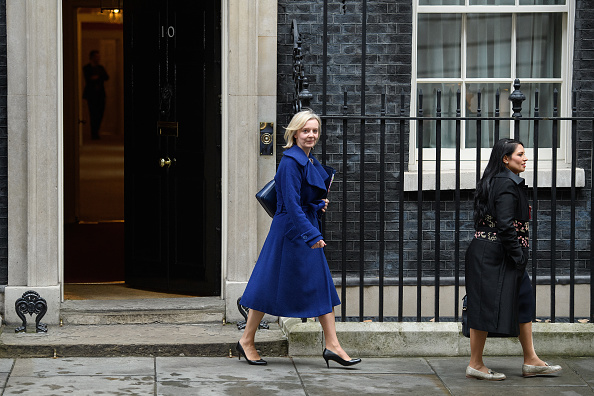If we take abuse of women for granted in politics, our democracy will pay

Online abuse and harassment of women in public life has become a curse on our political landscape. For many, such abuse is simply the cost of doing politics, an unfortunate but largely inevitable factor women have to wrestle with when making the decision to enter public life.
At best, the abuse is insulting and unsavoury, and at worst it is violent, aggressive and leads to real world violence. The latter is not a question of simply ignoring it, of turning off Twitter notifications and hoping for the best. As was tragically demonstrated by the death of Jo Cox, it may start online but it translates into a very tangible danger. Underneath this is another unpalatable truth: the addition of race, sexuality and disability increases the amount of abuse they are likely to receive online.
But what’s worrying is how normalised this has become, how quietly we have accepted it will probably be a challenge people, especially women, in politics will have to overcome with very little hope of questioning the status quo.
In the 1990s, extensive and successful efforts were made by political parties to increase female representation. Innovations such as all women shortlists were transformational for female representation in Parliament. These reforms were not trivial: they involved extensive financial, human and political capital to increase the female quota of MPs.
Many assumptions about female politicians have been challenged before and have been matched with an agenda for reform. This energy needs to be revived for 2022. The same effort put into getting women in Parliament now needs to be put into keeping them there.
In 2019, we saw the highest ever proportion of women MPs enter Parliament. Women tend to leave the Commons younger, having spent less time there than men. Many of those leaving early have cited social media abuse as a significant problem. Female MPs have also suggested they may not have entered public life had they known the scale of abuse they would be exposed to. This sentiment is also matched by activists – potential MPs – who decided not to stand due to the prospect of constant harassment.
As ever, it is the opportunity cost of inaction we should look at. How many young girls have watched the endless amount of diatribe directed at women across the political spectrum and thought “no, that’s not for me”?
There is a mistaken assumption that the number of women MPs will always go up. But if the level of abuse continues to grow, more and more of them might walk away from public life.
Any attempt at action should not just be about telling women in public life how to deal with abuse after the fact, but to actively prevent it from happening or at least to reduce its impact. Both industry and the government are starting to think about how to do this.
Regulation takes time to design and implement before it is fully effective as originally intended. It is also, as we have seen with the Online Safety Bill, a lightning rod for controversy. But there are innovative tools available which should be part and parcel of policies designed to recruit and keep women in politics. Block Party, for example, has been developed specifically for people in the public eye. As a browser add-on compatible with Twitter, it filters out abusive content in a much more sophisticated and precise way than traditional content moderation. It also allows trusted supporters to take action on a politician’s behalf, without giving away full access to their Twitter account.
Tools like Block Party offer hope when it comes to practical answers to the intractable challenges of online abuse. The government has also offered some solutions of their own through the Online Safety Bill. It has drawn some serious criticism, but it is also tentatively promising as it at least demonstrates a willingness to better understand the problem, to promote transparency and ensure hateful content is not promoted in order to keep eyeballs on their apps.
But prolonged legislative agendas will not solve the problem on our screens now.
It is complacent to think that because we have more women in Parliament than we once did, that we have turned a corner – equality requires consistent, concerted effort.
